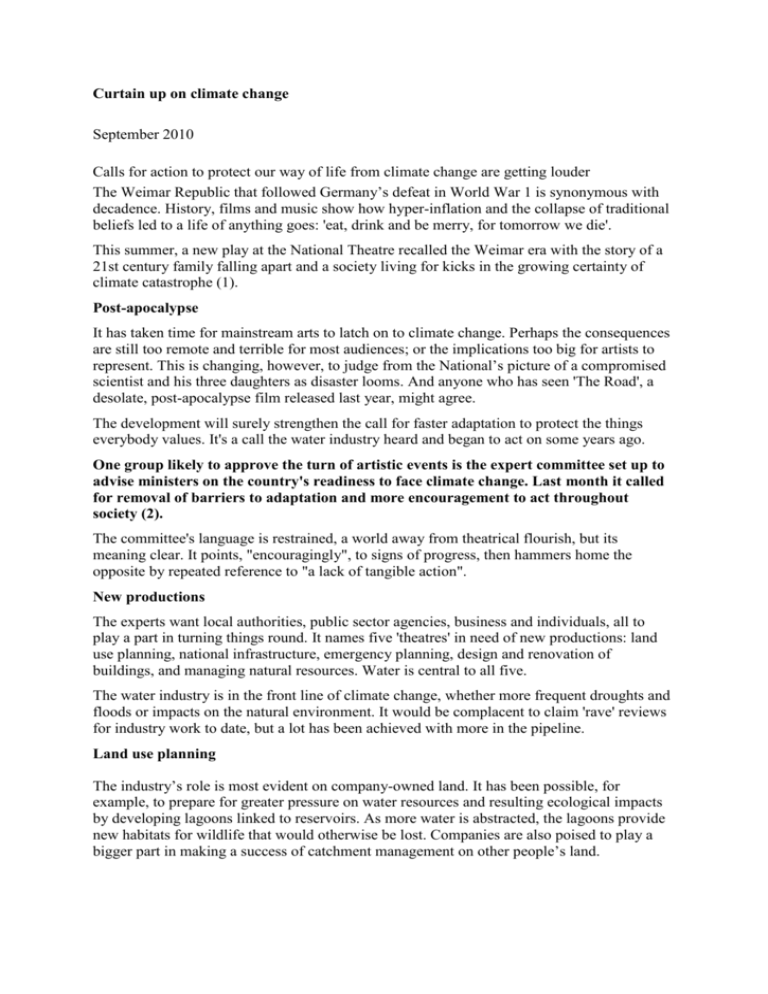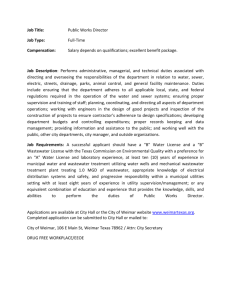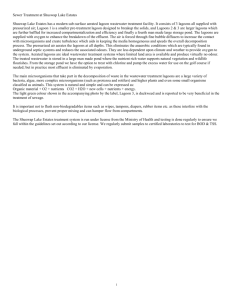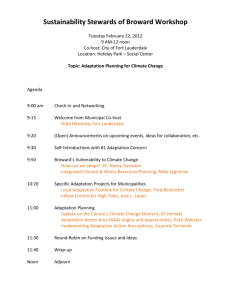Curtain up on climate change, September 2010
advertisement

Curtain up on climate change September 2010 Calls for action to protect our way of life from climate change are getting louder The Weimar Republic that followed Germany’s defeat in World War 1 is synonymous with decadence. History, films and music show how hyper-inflation and the collapse of traditional beliefs led to a life of anything goes: 'eat, drink and be merry, for tomorrow we die'. This summer, a new play at the National Theatre recalled the Weimar era with the story of a 21st century family falling apart and a society living for kicks in the growing certainty of climate catastrophe (1). Post-apocalypse It has taken time for mainstream arts to latch on to climate change. Perhaps the consequences are still too remote and terrible for most audiences; or the implications too big for artists to represent. This is changing, however, to judge from the National’s picture of a compromised scientist and his three daughters as disaster looms. And anyone who has seen 'The Road', a desolate, post-apocalypse film released last year, might agree. The development will surely strengthen the call for faster adaptation to protect the things everybody values. It's a call the water industry heard and began to act on some years ago. One group likely to approve the turn of artistic events is the expert committee set up to advise ministers on the country's readiness to face climate change. Last month it called for removal of barriers to adaptation and more encouragement to act throughout society (2). The committee's language is restrained, a world away from theatrical flourish, but its meaning clear. It points, "encouragingly", to signs of progress, then hammers home the opposite by repeated reference to "a lack of tangible action". New productions The experts want local authorities, public sector agencies, business and individuals, all to play a part in turning things round. It names five 'theatres' in need of new productions: land use planning, national infrastructure, emergency planning, design and renovation of buildings, and managing natural resources. Water is central to all five. The water industry is in the front line of climate change, whether more frequent droughts and floods or impacts on the natural environment. It would be complacent to claim 'rave' reviews for industry work to date, but a lot has been achieved with more in the pipeline. Land use planning The industry’s role is most evident on company-owned land. It has been possible, for example, to prepare for greater pressure on water resources and resulting ecological impacts by developing lagoons linked to reservoirs. As more water is abstracted, the lagoons provide new habitats for wildlife that would otherwise be lost. Companies are also poised to play a bigger part in making a success of catchment management on other people’s land. National infrastructure Being responsible for arguably the most important, if not most costly, economic infrastructure puts water companies in the middle of the debate led by Infrastructure UK. Resilience is a core theme in its national plan published this month (3). The water industry has proved its investment credentials year-in, year-out, at no cost to the taxpayer. Its planning capability is well-honed. Barring risky policy or regulatory changes spooking investors, it is as well placed as any for what comes next. Emergency planning The 2007 floods were a wake-up call for all, including water companies. The industry acted quickly to identify vulnerability and plan remedial action. Much has already been achieved in providing alternative sources for communities dependent on a single supply. Several companies are taking major steps to transform inter-connectivity in their catchments. Design and renovation of buildings Water and sewerage companies’ drainage duties mean they are partners with local authorities, regulators and the public in seeking to make new and existing property more resilient. Even now, the voice of water services can come second or third to the urgent need for development. But as appreciation of the real impacts of climate change grows, so surely will appreciation of the real need for effective 'water-proofing’. Managing natural resources The industry’s expertise in water quality and water resources management makes it a prime contributor to society’s efforts to manage natural resources. At the detailed level, the relevant projects are too numerous too mention; but for starters consider water efficiency promotion, energy generation from anaerobic digestion, and use of treated sludge as biosolids in agriculture. If there were ever any certainties about climate change, they have been shaken in recent months. To some, no doubt, the acrimonious public debate has seemed close to farce. Yet the role of sectors such as water and wastewater is surely unaffected. Society expects and deserves our best efforts to stop current anxiety turning into tragedy. 1) Earthquakes in London, Mike Bartlett, first performed July 2010 2) Adaptation Sub-Committee, Climate Change Committee, September 2010 3) National Infrastructure Plan 2010, HM Treasury and Infrastructure UK, October 2010. This article appeared first in Water & Wastewater Treatment magazine October 2010.







